Synopsis
How did the election reflect the dramatically changed working lives of women?
- Programme: Politically
- Series: Postwar
- Episode: 6: Appealing to Women
- Channel: BBC Radio 8
- Broadcast year: 2025
- History | Cold War
Licence: ERA Licence required
UK only
Staff and students of licensed education establishments only
Cannot be adapted
Add Notes
More clips from Politically
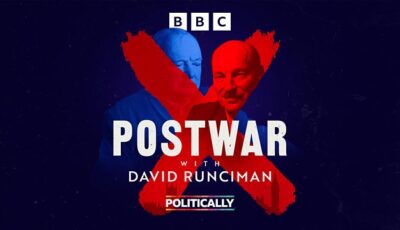
Postwar: 1: The Rejection | Politically
Postwar: 1: The Rejection | Politically
David Runciman tells the story of the 1945 election and the dawn of a new age. Why did Winston Churchill find himself so decisively r...
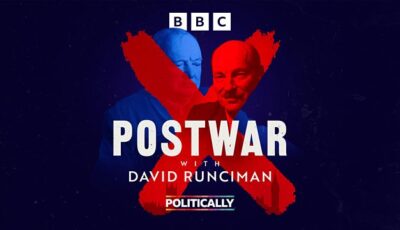
Postwar: E10: India and Empire | Politically
Postwar: E10: India and Empire | Politically
The question of self-government for India would have to be confronted when war was over.

Postwar: E11: Homes for Heroes | Politically
Postwar: E11: Homes for Heroes | Politically
In the end, the election was fought and decided over two main issues: demobilisation and housing.

Postwar: E12: Art, War and Propaganda | Politically
Postwar: E12: Art, War and Propaganda | Politically
With the formation of the Arts Council in 1945, on-going state patronage of the arts began.

Postwar: E13: From Yalta to Potsdam | Politically
Postwar: E13: From Yalta to Potsdam | Politically
Between the Yalta and Potsdam conferences, everything changed.

Postwar: E14: United Nations | Politically
Postwar: E14: United Nations | Politically
Both main parties supported the United Nations, but they disagreed about what that meant.

Postwar: E15: Debt to America | Politically
Postwar: E15: Debt to America | Politically
In 1945, Britain was the most indebted country in the world.

Postwar: E16: The Result | Politically
Postwar: E16: The Result | Politically
The immediate result of the general election was silence: a three-week hiatus.

Postwar: E17: A New Jerusalem? | Politically
Postwar: E17: A New Jerusalem? | Politically

Postwar: E18: Churchill: Lion in Winter | Politically
Postwar: E18: Churchill: Lion in Winter | Politically
What happened to Winston Churchill in the years after the 1945 general election?

Postwar: E19: Post-postwar | Politically
Postwar: E19: Post-postwar | Politically
When did the postwar period end?

Postwar: E2: Mr Churchill and Mr Attlee | Politically
Postwar: E2: Mr Churchill and Mr Attlee | Politically
With the war in Europe at an end, Churchill and Attlee became fierce election rivals.

Postwar: E20: What if? | Politically
Postwar: E20: What if? | Politically
What would Britain have been like if Winston Churchill had won the 1945 general election?

Postwar: E3: The Beveridge Report | Politically
Postwar: E3: The Beveridge Report | Politically
William Beveridge's plan was an answer to the question of what we were fighting for.

Postwar: E4: Public Opinion | Politically
Postwar: E4: Public Opinion | Politically
How could politicians know what voters were thinking in 1945?

Postwar: E5: The Soldiers' Election | Politically
Postwar: E5: The Soldiers' Election | Politically
During the 1945 election, there were still almost five million servicemen and women.

Postwar: E7: The Labour Manifesto | Politically
Postwar: E7: The Labour Manifesto | Politically
Uniquely in modern British history, the 1945 Labour Manifesto was a genuine bestseller.

Postwar: E8: Healthcare for All | Politically
Postwar: E8: Healthcare for All | Politically
The war changed many things, and access to healthcare was one of them.

Postwar: E9: Churchill's 'Gestapo' Broadcast | Politically
Postwar: E9: Churchill's 'Gestapo' Broadcast | Politically
Winston Churchill's first election broadcast in 1945 might be remembered as his greatest gaffe.
More resources about The welfare state and NHS

Postwar: 1: The Rejection | Politically
Postwar: 1: The Rejection | Politically
David Runciman tells the story of the 1945 election and the dawn of a new age. Why did Winston Churchill find himself so decisively r...

Modern British History | GCSE Bitesize Revision
Modern British History | GCSE Bitesize Revision
Exam revision programme focusing on the Liberal reforms, women's suffrage, the Home Front, the General Strike, the Depression...

Postwar: E3: The Beveridge Report | Politically
Postwar: E3: The Beveridge Report | Politically
William Beveridge's plan was an answer to the question of what we were fighting for.
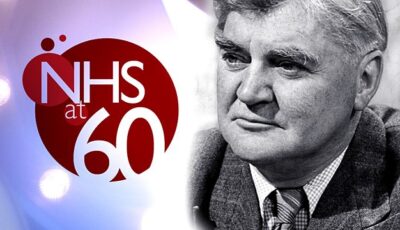
The NHS: A Difficult Beginning
The NHS: A Difficult Beginning
The story of the birth of the NHS, revealing how close its opponents came to defeating it and why the some of the fiercest opposition came fro...
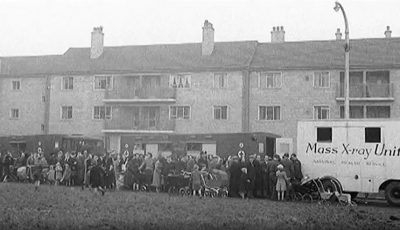
Post-war Britain - the development of the National Health Service (NHS) | Exploring the Past: Post War Britain
Post-war Britain - the development of the National Health Service (NHS) | Exploring the Past: Post War Britain
Kirsty investigates how the newly formed NHS saved the life of...

Postwar: E5: The Soldiers' Election | Politically
Postwar: E5: The Soldiers' Election | Politically
During the 1945 election, there were still almost five million servicemen and women.
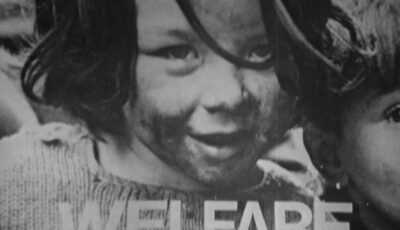
Welfare State In Action | Panorama
Welfare State In Action | Panorama
A look at Britain's social services, including interviews with Professor Peter Townsend and Anthony Crosland.
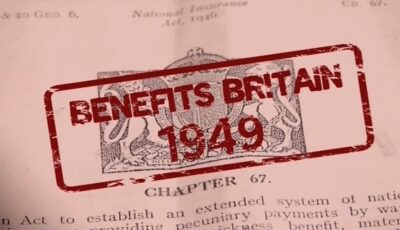
Episode 1 | Benefits Britain 1949
Episode 1 | Benefits Britain 1949
Benefits claimants volunteer to live by the rules of the first year of the welfare state. This first episode asks how the state should supp...
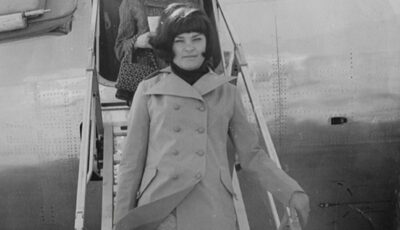
Exploring the Past: Post War Britain
Exploring the Past: Post War Britain
Six young people trace their family histories to find out what life was like in post-war Britain, discovering how society has changed.

Postwar: E11: Homes for Heroes | Politically
Postwar: E11: Homes for Heroes | Politically
In the end, the election was fought and decided over two main issues: demobilisation and housing.

Postwar: E2: Mr Churchill and Mr Attlee | Politically
Postwar: E2: Mr Churchill and Mr Attlee | Politically
With the war in Europe at an end, Churchill and Attlee became fierce election rivals.

Postwar: E4: Public Opinion | Politically
Postwar: E4: Public Opinion | Politically
How could politicians know what voters were thinking in 1945?

Postwar: E7: The Labour Manifesto | Politically
Postwar: E7: The Labour Manifesto | Politically
Uniquely in modern British history, the 1945 Labour Manifesto was a genuine bestseller.

Postwar: E8: Healthcare for All | Politically
Postwar: E8: Healthcare for All | Politically
The war changed many things, and access to healthcare was one of them.

Postwar: E9: Churchill's 'Gestapo' Broadcast | Politically
Postwar: E9: Churchill's 'Gestapo' Broadcast | Politically
Winston Churchill's first election broadcast in 1945 might be remembered as his greatest gaffe.
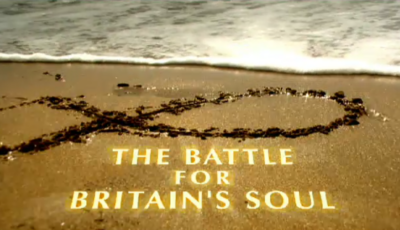
S2E4: Endgame | The Battle for Britain's Soul
S2E4: Endgame | The Battle for Britain's Soul
Angels over battlefields, the birth of the welfare state, US evangelism and a revolution in sexual freedom are all factors in t...
